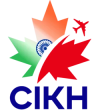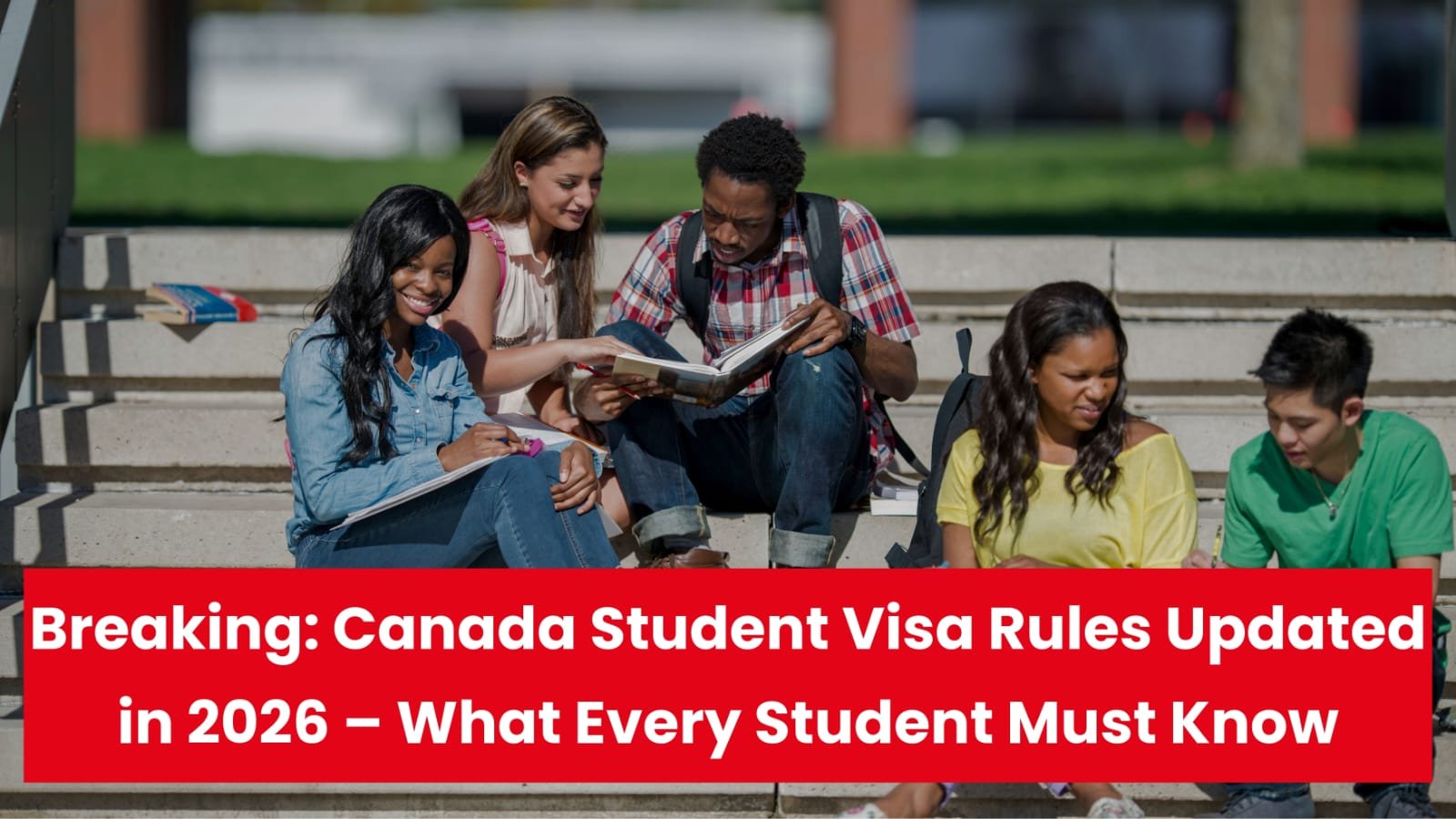Who can apply
Eligibility requirements
You can study in Canada if you meet the following requirements:
- You are enrolled at a Designated Learning Institution (DLI).
- You can demonstrate sufficient financial resources to cover:
- Your tuition fees
- Living expenses for yourself and any accompanying family members
- Return transportation costs for yourself and any accompanying family members
- You obey the law, have no criminal record, and can obtain a police certificate if required.
- You are in good health and can undergo a medical exam if required.
- You can convince an immigration officer that you will leave Canada once your study permit expires.
Get your study permit faster through the Student Direct Stream
If you are a legal resident of certain countries, you may be eligible to obtain your study permit more quickly by applying online through the Student Direct Stream.
Your responsibilities
While studying in Canada, you must:
- Make progress towards completing your program.
- Adhere to any conditions listed on your study permit.
- Stop studying if you no longer meet the requirements.
Your study permit may also include specific conditions, such as:
- Whether you are allowed to work in Canada.
- Whether you are allowed to travel within Canada.
- The specific date by which you must leave Canada.
- The designated learning institution (DLI) where you are permitted to study.
- If you wish to transfer to a different DLI, you must update your information in your IRCC secure account before making the change.
- Whether you need to undergo an immigration medical examination.
Get the right documents
- Evidence of acceptance into the educational institution.
- A provincial attestation letter from the province or territory where you intend to study.
- Valid identification documents.
- Documentation proving your financial ability to support yourself during your studies.
Additional documents that might be necessary include:
- A letter clarifying any specific circumstances.
- Results of a medical examination.
- A custodian declaration for minors.
- Any other pertinent documents requested by the authorities.
How to apply
Generally, you must apply for a study permit before you come to Canada. Some people can apply for a study permit from within Canada. In some cases, you can apply when you arrive in Canada at the port of entry. Make sure you understand which option is available to you.
- Get your documents ready
- When you apply, you should submit the letter of acceptance from the designated learning institution (DLI) you’ll be attending a provincial attestation letter (PAL) from the province or territory where you plan to study
- You can upload your PAL into the Provincial attestation letter (required) field in your application. If this option is missing, you must upload your PAL to the Client information field. If you meet an exception, you must provide any evidence in the Client information field.
- as many of the documents needed for a complete application as possible
- We won’t be able to finalize your study permit until you’ve submitted a complete application.
- Waiting to submit documents will cause delays in processing.
Apply online
If you’re applying for a study permit, you must apply online, whether you’re outside of Canada or already in Canada.
You’re only eligible to apply on paper if you
- have a disability that prevents you from applying online
- hold an identity or travel document for non-national residents, refugees or stateless persons
After you apply
Processing time: 14 weeks (This processing time doesn’t include the time you need to give biometrics.)
1.Your fingerprints and photo (biometrics)
Book your biometrics collection appointment as soon as you can to avoid processing delays. Find out how to give biometrics.
2. We process your study permit application
We’ll check your application to make sure you have all the necessary documents. If it’s incomplete, we may return your application without processing it, or request the missing documents.
IRCC may also ask you to:
- go to an interview with our officials in your country, or
- send us more information
You may also need to get a:
- medical exam (if required), or
- police certificate (if required)
Missing documents
If you weren’t able to submit all the required documents with your application, you can submit the missing documents through your online account or our web form.
We won’t process your study permit until you’ve submitted a complete application. Waiting to submit documents will cause delays in processing.
Updating your application
If you move or change your address, telephone number or any other contact information after you apply, you must update your application.
Use the application status tracker to get updates about your application. To create an account you need your
- unique client identifier (UCI)
- application number
If IRCC approve your application
You’ll get your study permit
- at the port of entry when you arrive in Canada or
- mailed to you, if you’re already in Canada
If you applied for your study permit from outside Canada
IRCC will send you a port of entry letter of introduction that says you’re allowed to study in Canada. This letter is not your study permit.
You need to bring this letter with you and show it to a border services officer when you arrive in Canada. IRCC will also send you an electronic travel authorization (eTA) or a visitor visa (temporary resident visa) to enter Canada, if you need one.
If you’re from a country where you need an eTA, the letter of introduction will include information about your eTA. Your eTA will be linked to your passport and is valid for 5 years or until your passport expires, whichever comes first. It’s important that you travel with the passport you used when you applied for your study permit.
If you’re from a country where you need a visitor visa, the visa will be in your passport. It’ll show if you can enter Canada once or multiple times. You must enter Canada before your visa expires.
If you’re a lawful permanent resident of the United States, travel with a valid green card (or equivalent official proof of status in the U.S.) and a valid passport from your country of nationality (or an equivalent document).
If you applied for your study permit from inside Canada
If you were eligible to apply from inside Canada
IRCC will mail your study permit to the Canadian address you included in your application.
If you followed the instructions to apply for a study permit from outside Canada
If you followed the instructions to apply for a study permit from outside Canada
In this case, you filled out the form called Application for Study Permit Made Outside of Canada [IMM 1294]. If your application is approved, you’ll get an approval letter that says you’re allowed to study in Canada. This letter is called the port of entry letter of introduction.
Once you have this letter, you must leave and ask to get your study permit on return to Canada.
If we refuse your application
IRCC will send you a letter explaining why.
We may refuse your application if you don’t
- have a valid letter of acceptance
- show proof that you have enough money to support yourself while studying in Canada pass your medical exam, if you needed to get one
- convince the visa officer that your main purpose in Canada is to study or
- convince the visa officer that you’ll leave Canada at the end of your study period
If you have questions about why you were refused, contact the visa office that sent you the refusal letter.
Prepare for your arrival
Before you come to Canada
Before you arrive, read the pre-departure guide for tips and information about student life in Canada.
To help ensure a smooth arrival in Canada, please check the Canadian Border Service Agency’s information for international students, and download their PDF pamphlet (PDF, 592 KB).
How early can you arrive in Canada before you start studying
There is no set time frame for you to arrive in Canada before you begin your studies. You should just arrive to give yourself a reasonable amount of time to prepare before you start studying.
You are not allowed to work on or off campus until you begin your studies in Canada.
Changing your designated learning institution if you’re outside Canada
If your application for a study permit has been approved and you change your designated learning institution, you must submit a new study permit application with a new letter of acceptance. You must also pay all the fees for the new application.
When you arrive in Canada
When you arrive in Canada, you’ll meet a border services officer who will make sure you meet some basic requirements. To enter Canada, you must
- have a valid travel document, such as a passport
- have the port of entry letter of introduction the visa office sent you when they approved your study permit .This letter has your permit reference number, which we use to issue your study permit.
- have a copy of a valid letter of acceptance from your school
- have letters of reference or any other documents the visa office told you to bring
- have a valid electronic travel authorization (eTA), a valid visitor visa (temporary resident visa), a valid green card (or equivalent official proof of U.S. status) or another valid travel document
- If you have a valid eTA, it’ll be linked to the passport you used to apply for your study permit.
- have enough money for your stay (the amount you will need can vary—it depends on things such as how long you will stay, and whether you will stay in a hotel, or with friends or relatives)
- be in good health
- have no criminal or immigration-related convictions
- convince an immigration officer that
- you have ties—such as a job, home, financial assets or family—that will take you back to your home country
- you will leave Canada at the end of your visit
- have valid immigration medical exam results (if you needed one)
- Your exam is valid for 12 months from the day you get it.
- It must be valid the day you enter Canada.
- If your exam will expire before you enter Canada, you need to get another medical exam.
- This applies even if your letter of introduction is still valid.
- prove that you’ll leave Canada at the end of your stay
- If you need proof you entered Canada
- Your school or training facility may need you to prove you entered Canada. If you need proof of entry, make sure a border services officer stamps your passport before you leave Canadian customs. You may also be able to use a Primary Inspection Kiosk to stamp your passport.
Inadmissibility
Some people are inadmissible—they’re not allowed to come to Canada. Several things can make you inadmissible, including involvement in criminal activity, in human rights violations or in organized crime.
You can also be inadmissible for security, health or financial reasons.
While you study
While you’re studying in Canada as an international student, you must meet the conditions of your study permit and keep your profile information updated in your online account. If your study program is ending soon, you also need to know how long you can stay in Canada and what to do if you plan to stay longer.
Updating your profile information
If information in your profile changes, you must update it in your online account.
You may need to update your profile if you
- change schools
- need to update documents or your contact information
Changing schools
Before you change your school or program, you must meet all the conditions of your study permit.This means you must be
- enrolled at a designated learning institution (DLI) and
- actively studying while you’re in Canada
You need to update your online account or contact us if you
- are a post-secondary student changing schools or
- have a co-op work permit and have changed post-secondary schools to another co-op program
Updating your contact information or documents
Contact information
You must keep the contact information on your study permit up to date. If your contact information changes, use our web form to update it.
Medical exams
If you plan to leave Canada while you’re studying, you’ll need a new immigration medical exam (IME) to return if
- you’re from a country that requires a valid IME to enter Canada and
- your IME has expired or will expire while you’re outside of Canada
Changing the conditions of your study permit
If you want to change a condition on your study permit, you must apply.
How long your study permit is valid
A study permit is usually valid for the length of your study program, plus an extra 90 days. The 90 days let you either
- prepare to leave Canada or
- apply to extend your stay
The amount of time you can stay in Canada after you’ve completed your studies depends on whether
- you’re taking prerequisite courses
- your study permit will expire before you finish your studies
- you’ll finish your studies before your study permit expires
If you’re taking prerequisite courses
If your school asks you to take courses before they accept you into the main program (you have conditional acceptance), your study permit will be valid for the length of those courses plus 1 year.
When you get accepted into the main program, you must apply to extend your stay as a student.
If your study permit will expire before you finish your studies
If your study permit will expire before you finish your courses, you must apply to extend your stay as a student.
If you don’t, you’ll need to stop studying and leave Canada.
If you’ll finish your studies before your study permit expires
If you finish your studies early, your study permit will stop being valid 90 days after you complete your studies, no matter what day is printed on the study permit.
Your studies are officially completed on the date your school first notifies you by any of the following:
- completion letter
- transcript
- degree or diploma
You must provide proof of the date your school notifies you or the date you get your degree, diploma or certificate. If you don’t have proof, we’ll use the earliest issue date on the document. We may confirm this date with your school.
Staying in Canada after you graduate
You may be able to work temporarily or live permanently in Canada after you graduate.





